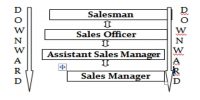E-commerce or electronic commerce, a subset of e-business, is the purchasing, selling, and exchanging of goods and services over computer networks (such as the Internet) through which transactions or terms of sale are performed electronically. Electronic commerce draws on technologies such as mobile commerce, electronic funds transfer, supply chain management, Internet marketing, online transaction processing, electronic data interchange (EDI), inventory management systems, and automated data collection systems. Contrary to popular belief, e-commerce is not just on the Web. In fact, e-commerce was alive and well in business to business transactions before the Web back in the 70s via EDI (Electronic Data Interchange) through VANs (Value-Added Networks).
E-commerce can be broken into four main categories: B2B, B2C, C2B, and C2C.
B2B (Business-to-Business): Companies doing business with each other such as manufacturers selling to distributors and wholesalers selling to retailers. Pricing is based on a quantity of order and is often negotiable.
B2C (Business-to-Consumer): Businesses selling to the general public typically through catalogs utilizing shopping cart software. By dollar volume, B2B takes the prize; however, B2C is really what the average Joe has in mind with regards to e-commerce as a whole.
Having a hard time finding a book? Need to purchase a custom, high-end computer system? How about a first class, all-inclusive trip to a tropical island? With the advent e-commerce, all three things can be purchased literally in minutes without human interaction. Oh how far we’ve come!
C2B (Consumer-to-Business): A consumer posts his project with a set budget online and within hours companies review the consumer’s requirements and bid on the project. The Consumer reviews the bids and selects the company that will complete the project. Enlace empowers consumers around the world by providing the meeting ground and platform for such transactions.
C2C (Consumer-to-Consumer): There are many sites offering free classifieds, auctions, and forums where individuals can buy and sell thanks to -online payment systems like PayPal where people can send and receive money online with ease. eBay’s auction service is- a great example of where person-to-person transactions take place every day since 1995.
companies using internal networks to offer their employees products and services online not necessarily online on the Web are engaging in B2E (Business-to-Employee) commerce,
G2G (Government-to-Government), G2E (Government-to-Employee), G2B (Government-to-Business), B2G (Business-to-Government), G2C (Government to Citizen). C2G (Citizen-to-Government) are other forms of e-commerce that involve transactions with the government from procurement to filing taxes to business registrations to renewing licenses. There are other categories of e-commerce out there, but they tend to be superfluous.















